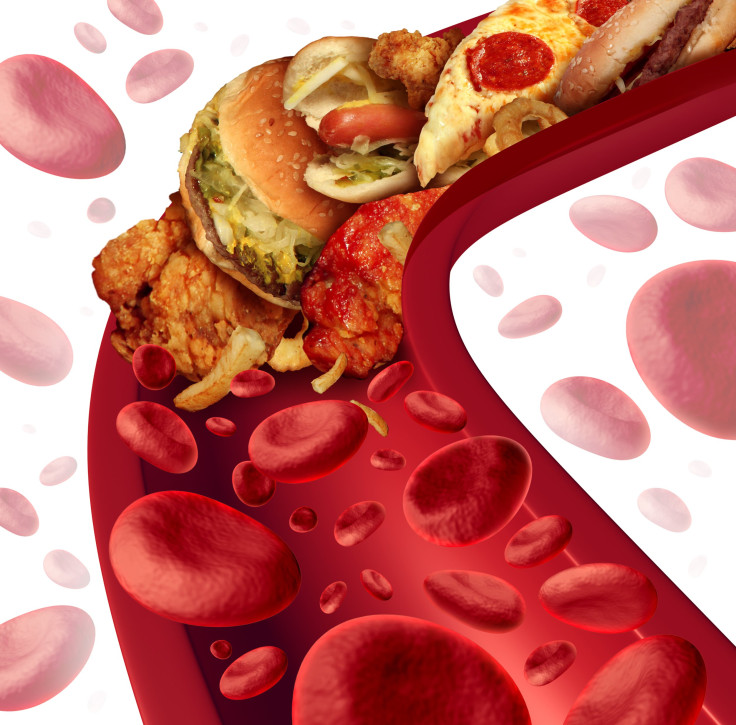Eating Out Hurts Your Heart Health:5 Little-Known Causes Of High Blood Pressure

Foods found in restaurants, from bar stools to drive-thru windows, are notorious for their high-salt and -fat dishes. So if you find yourself dining out too often, your heart could be paying the consequences, according to new findings. Singapore researchers from Duke-NUS Graduate Medical School found the first association between elevated high blood pressure, also referred to as hypertension, and how often people eat outside of their home. The study, published in the American Journal of Hypertension, reveals how your lifestyle choices may be putting your heart at risk.
"While there have been studies conducted in the United States and Japan to find behaviors associated with hypertension, very few have surveyed a Southeast Asian population," the study’s lead author Dr. Tazeen Jafar, a professor of the Health Services and Systems Programme at Duke-NUS, said in a press release. "Our research plugs that gap and highlights lifestyle factors associated with pre-hypertension and hypertension that are potentially modifiable, and would be applicable to young adults globally, especially those of Asian descent."
Researchers asked 501 university students between the ages of 18 to 40 lifestyle questions, such as their blood pressure, body mass index, and lifestyle questions like how often they exercise, and eat meals in and out of their homes. They found 38 percent of the group ate more than 12 of their meals away from their home every week, and 27.4 percent of the entire group was already on the road to high blood pressure with a pre-hypertension reading.
Those with pre-hypertension or hypertension were more likely to eat away from home, have higher body mass index (BMI), sedentary lifestyle with low levels of physical activity, and be smokers. Nearly half of all men were at a heightened risk, while only nine percent of women were at risk with a pre-hypertension diagnosis. Just eating one meal away from home each week led to a six percent increased risk for pre-hypertension.
There are several largely unknown ways a person can be at an increased risk for hypertension. Because blood pressure is measured by the amount of force placed on the heart’s artery walls during rest and activity, changes in the body can alter force. When a person is diagnosed with high blood pressure, the pressure is too forceful against the walls, which can eventually lead to damage and tearing.
Primary blood pressure is the most well-known type of condition people and tends to develop gradually over time. Secondary hypertension is caused by an underlying condition and usually develops suddenly, according to Mayo Clinic. The following conditions can happen over time, such as eating out, but certain over-the-counter drugs can cause a jump in pressure.
5 Causes Of High Blood Pressure You Might Not Have Known About:
1. Dining Out
Foods high in sodium cause a rise in blood pressure because salt causes your kidneys to hold more water. The extra water storage puts a strain on your kidneys, arteries, heart, and brain. The strain placed on the delicate blood vessels leading to the kidneys is what causes hypertension over time, according to Blood Pressure UK.
2. Sleep Apnea
One in five adults has some level of sleep apnea, which is characterized by snoring from stops in breathing for brief moments during their slumber, according to the American Heart Association. The sudden drop in blood oxygen levels causes a strain on the cardiovascular system, and in turn, increases blood pressure.
3. Pregnancy
There have been cases where women develop high blood pressure during their pregnancy called “pregnancy-induced hypertension” or “preeclampsia.” The risk of preeclampsia rises if you’re older than 35 years old, carrying multiple babies, or are obese during pregnancy, according to the Mayo Clinic. Even a slight raise can characterize the condition.
4. Alcohol Abuse
Moderate alcohol consumption thins the blood and allows for easier flow throughout the artery chambers in the heart, according to Choose Help. However, heavy drinking, leads blood vessels to constrict, especially during periods of withdrawal from alcohol. The body undergoes dramatic fluctuations in blood pressure because the body loses the ability to properly regulate itself.
5. Over-The-Counter Drugs and Birth Control
Decongestants are the greatest cause for concern for raising high blood pressure, when it comes to OTC drugs. They relieve stuffiness by narrowing blood vessels in the nose, which may also narrow other vessels throughout the body to increase the heart’s force to push blood throughout the body, according to Mayo Clinic. People who take Tylenol daily are also more likely to increase their blood pressure due to the acetaminophen.
Birth control has also been found to increase blood pressure, but it’s found more often in women who are already overweight, over the age of 35, or a smoker. The pill and other birth control devices contain hormones that may increase blood pressure by narrowing small blood vessels. Before taking any medication, you’re advised to talk to your doctor to make sure you’re not putting yourself at additional and unnecessary risk that may be avoided with an alternative treatment.
Source: Jafar TH, Seow DYB, and Haaland B. The Association of Prehypertension With Meals Eaten Away From Home in Young Adults in Singapore. American Journal of Hypertension. 2015.
Published by Medicaldaily.com



























